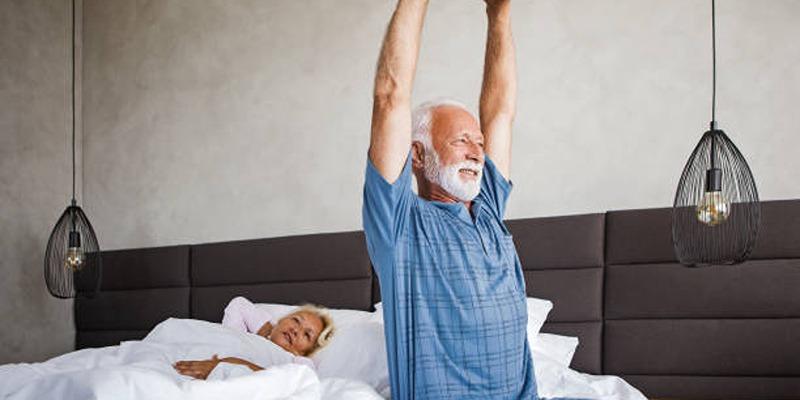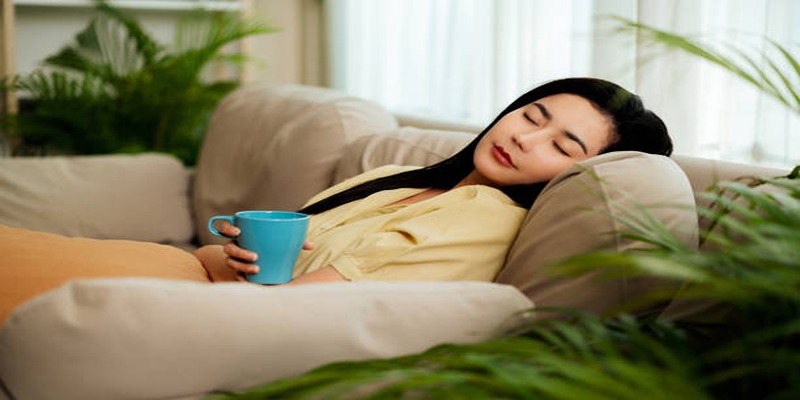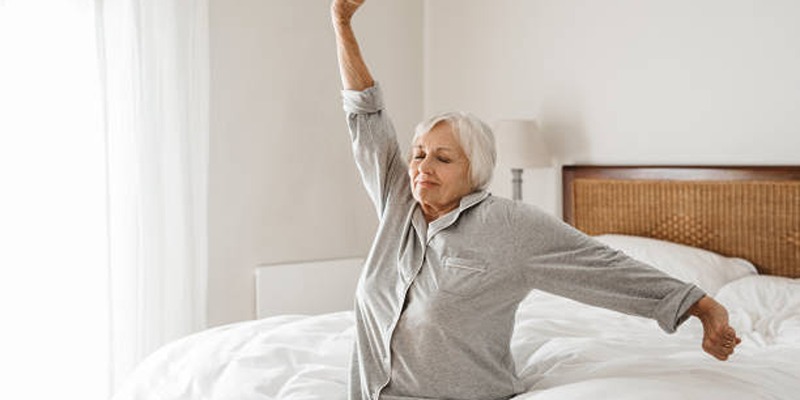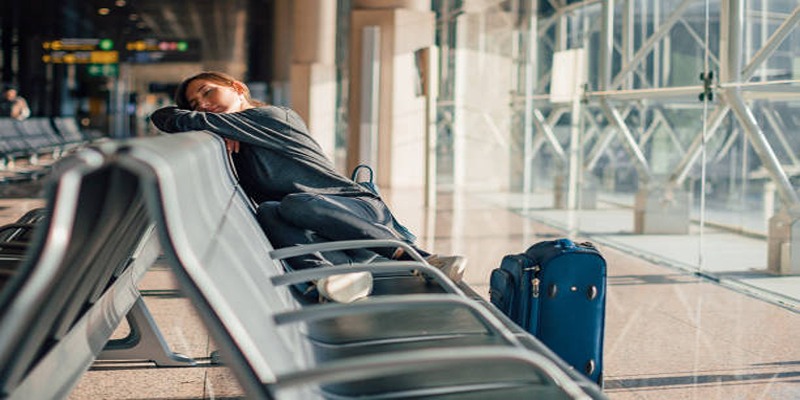Sleeping disorder is not a disease but a condition that is influenced by the effect of aging on the many activities in life. An especially widespread occurrence many elderly people face is waking up earlier than before. This change can be puzzling to the person as it interferes with the personal schedule they prefer most or makes the person so tired. Thus, understanding why this change has occurred is the first stage of managing it. In this article, you will learn: About the biological, health, and lifestyle reasons for early morning waking in older adults.
What Causes Older Adults to Wake Up Early?
 Lifestyle and physiological changes also affect our sleep which is why many older people wake up earlier than before.
Lifestyle and physiological changes also affect our sleep which is why many older people wake up earlier than before.
1. Changes in Circadian Rhythm
The sleep-wake cycle is thought to be controlled by the circadian rhythm, the body’s internal clock. This rhythm gradually changes as people advance in age through a phenomenon called advanced sleep phase syndrome. Old people go to bed early and wake up early in the morning due to the effects of aging. This takes place since aging leads to a diminution of melatonin production resulting from a decreased ability of the body to respond to the light that inhibits melatonin production.
2. Reduced Sleep Efficiency
Another contributing factor is the decline in sleep efficiency that comes with age. Older adults typically spend less time in the deep stages of sleep, which are essential for physical and mental restoration. Instead, they experience lighter sleep, making them more susceptible to disturbances. This lighter sleep can lead to early awakenings and difficulty returning to sleep.
3. Hormonal Changes
Hormonal shifts also play a significant role. Melatonin levels, which peak during the night to promote sleep, naturally decline as people age. At the same time, cortisol, the hormone responsible for wakefulness, may rise earlier in the morning. These hormonal changes can lead to earlier wake times, even if the individual still feels tired.
Health Factors That Contribute to Early Waking
Understanding the various health factors that contribute to early waking is crucial in addressing sleep disruptions and promoting overall well-being.
1. Medical Conditions
Chronic health issues are common in older adults and often impact sleep. Conditions like arthritis, diabetes, heart disease, and respiratory problems can cause discomfort, pain, or frequent interruptions during the night. For example, joint pain from arthritis or shortness of breath from conditions like COPD can lead to frequent waking and early mornings.
2. Mental Health and Stress
Mental health conditions such as anxiety and depression are more prevalent in older adults and can significantly affect sleep patterns. Individuals experiencing stress or sadness may have difficulty staying asleep or falling back asleep after waking early. Overthinking or ruminating during the night can also contribute to early awakenings.
3. Medication Side Effects
Many older adults take medications for chronic conditions, some of which have side effects that interfere with sleep. Diuretics, for example, can lead to nighttime trips to the bathroom, while stimulants or certain antidepressants may disrupt the sleep cycle. It’s essential to review medications with a healthcare provider to address potential side effects.
Lifestyle Factors That Affect Sleep
Several lifestyle factors can significantly influence the quality and duration of sleep. Understanding these factors can help individuals make informed choices to improve their sleep patterns and overall well-being.
1. Decreased Physical Activity
Physical activity plays a crucial role in regulating the sleep-wake cycle. Older adults who lead a sedentary lifestyle may find it harder to fall asleep and stay asleep. Reduced activity can also diminish sleep pressure, the body’s natural drive to sleep, leading to earlier waking.
2. Daytime Napping
While naps can be beneficial for some, excessive or long naps during the day can reduce the body’s need for sleep at night. This can result in early awakenings and difficulty achieving a full night’s rest. Older adults who nap frequently may inadvertently disrupt their sleep cycle.
3. Limited Exposure to Light
Exposure to natural sunlight is essential for regulating the circadian rhythm. However, older adults may spend less time outdoors, especially during colder months or due to mobility issues. This lack of light exposure can weaken the body’s internal clock, leading to earlier wake times and disrupted sleep.
Tips to Manage Early Waking
 While it may be challenging to change the body’s natural sleep-wake cycle, there are steps older adults can take to manage early waking and improve overall sleep quality.
While it may be challenging to change the body’s natural sleep-wake cycle, there are steps older adults can take to manage early waking and improve overall sleep quality.
1. Maintain a Regular Sleep Schedule
Maintaining regular sleep and wake times helps reinforce the body’s natural rhythm. Encourage older adults to go to bed and wake up at the same time each day, even on weekends. This consistency can help regulate the internal clock.
2. Create an Ideal Sleep Environment
Ensure the bedroom is conducive to sleep by keeping it dark, quiet, and cool. Use blackout curtains to block out light and consider a white noise machine or earplugs to reduce noise disturbances. A comfortable mattress and pillows can also make a significant difference in sleep quality.
3. Avoid Stimulants and Heavy Meals
Steer clear of caffeine, nicotine, and heavy meals before bedtime, as they can disrupt your ability to fall asleep or stay asleep through the night. If you're hungry, choose a light snack instead. Establish a calming bedtime routine to help prepare your body and mind for restful sleep.
4. Engage in Regular Physical Activity
Light to moderate exercise, such as walking, yoga, or gardening, can promote deeper and more restorative sleep. However, avoid vigorous workouts close to bedtime, as they may have the opposite effect.
5. Manage Stress and Anxiety
Relaxation techniques such as deep breathing, meditation, or gentle stretching can help calm the mind before bed. Creating a bedtime routine that includes reading, listening to soothing music, or journaling can also promote relaxation and better sleep.
6. Monitor Daytime Naps
Short naps of 20–30 minutes earlier in the day can be refreshing without interfering with nighttime sleep. Avoid long or late-afternoon naps, as they can make it harder to fall asleep at night.
7. Increase Exposure to Natural Light
Encourage older adults to spend time outdoors, especially in the morning. Exposure to sunlight helps regulate melatonin production and reinforces the body’s internal clock. For those who can’t go outside often, light therapy lamps can be a helpful alternative.
Conclusion
Waking up early is a common occurrence among older adults, driven by changes in circadian rhythm, sleep efficiency, health conditions, and lifestyle factors. While this shift is a natural part of aging, it doesn’t have to interfere with quality of life. By understanding the causes and adopting healthy sleep habits, older adults can improve their sleep quality and feel more rested and refreshed. If early waking persists or affects daily functioning, seeking medical advice can provide additional solutions to ensure restful nights and energetic mornings.











